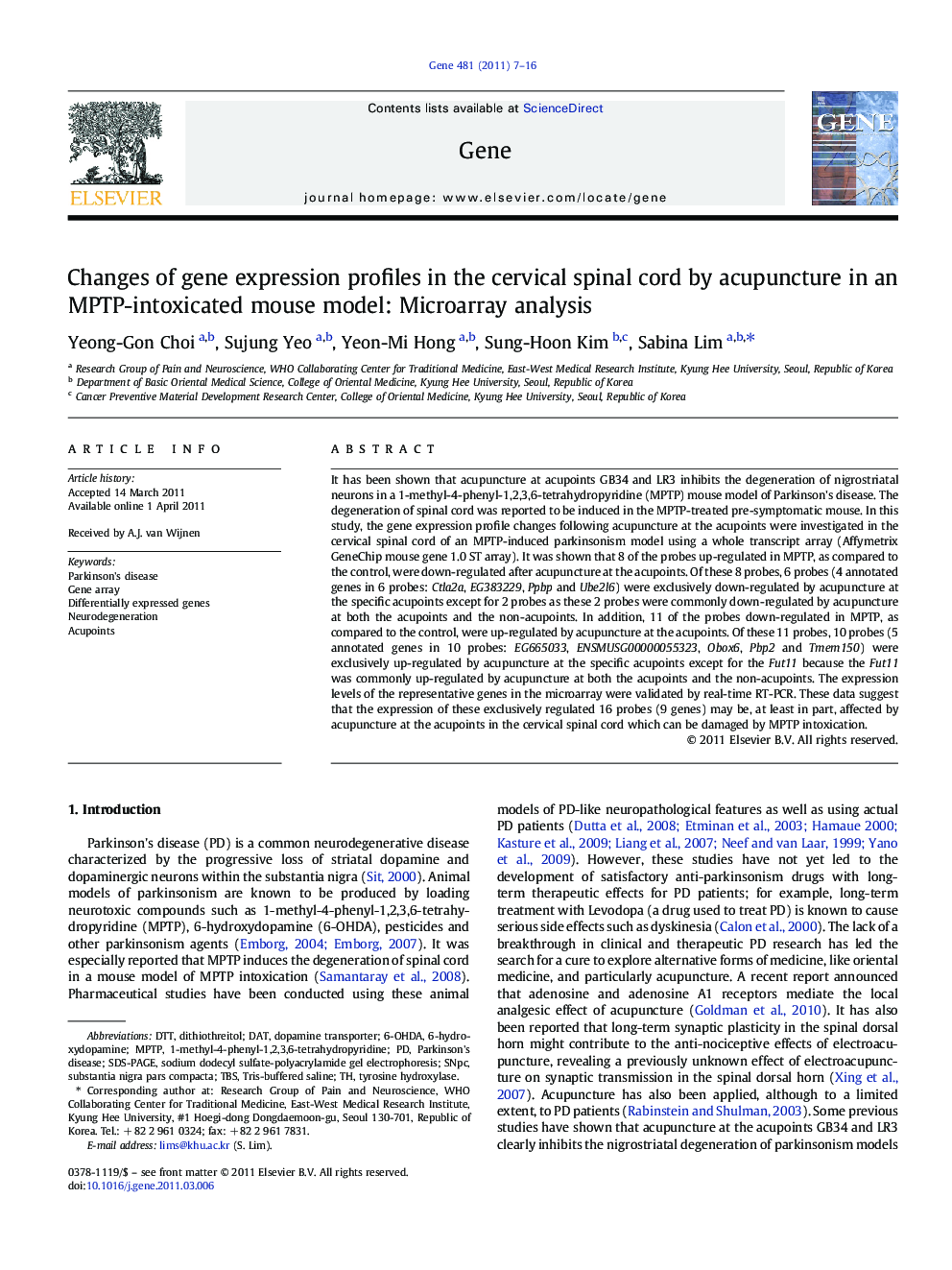| Article ID | Journal | Published Year | Pages | File Type |
|---|---|---|---|---|
| 2818357 | Gene | 2011 | 10 Pages |
It has been shown that acupuncture at acupoints GB34 and LR3 inhibits the degeneration of nigrostriatal neurons in a 1-methyl-4-phenyl-1,2,3,6-tetrahydropyridine (MPTP) mouse model of Parkinson's disease. The degeneration of spinal cord was reported to be induced in the MPTP-treated pre-symptomatic mouse. In this study, the gene expression profile changes following acupuncture at the acupoints were investigated in the cervical spinal cord of an MPTP-induced parkinsonism model using a whole transcript array (Affymetrix GeneChip mouse gene 1.0 ST array). It was shown that 8 of the probes up-regulated in MPTP, as compared to the control, were down-regulated after acupuncture at the acupoints. Of these 8 probes, 6 probes (4 annotated genes in 6 probes: Ctla2a, EG383229, Ppbp and Ube2l6) were exclusively down-regulated by acupuncture at the specific acupoints except for 2 probes as these 2 probes were commonly down-regulated by acupuncture at both the acupoints and the non-acupoints. In addition, 11 of the probes down-regulated in MPTP, as compared to the control, were up-regulated by acupuncture at the acupoints. Of these 11 probes, 10 probes (5 annotated genes in 10 probes: EG665033, ENSMUSG00000055323, Obox6, Pbp2 and Tmem150) were exclusively up-regulated by acupuncture at the specific acupoints except for the Fut11 because the Fut11 was commonly up-regulated by acupuncture at both the acupoints and the non-acupoints. The expression levels of the representative genes in the microarray were validated by real-time RT-PCR. These data suggest that the expression of these exclusively regulated 16 probes (9 genes) may be, at least in part, affected by acupuncture at the acupoints in the cervical spinal cord which can be damaged by MPTP intoxication.
